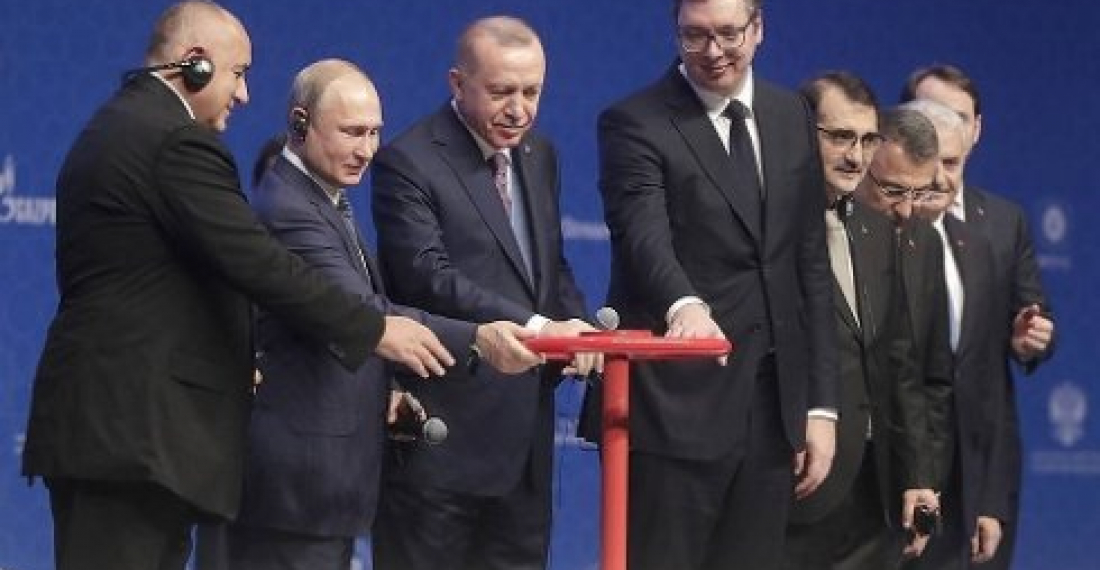President Vladimir Putin of Russia and Turksih president, Recep Tayyip Erdogan, have officially launched the TurkStream gas pipeline. The official launch ceremony took place at the Halic Congress Center in Istanbul on Wednesday 8 January.
Serbian President Aleksandar Vucic and Bulgarian Prime Minister Boyko Borissov also attended the ceremony.
The TurkStream project is a pipeline consisting of two lines each capable of transmitting 15.75 billion cubic meters of gas annually. The first line is intended for the Turkish market, the second branch is going to supply the countries of Southern and Southeastern Europe. Gazprom considers Greece, Italy, Bulgaria, Serbia and Hungary as potential markets.
Bulgaria began receiving Russian gas via TurkStream already on January 1, while North Macedonia and Greece started receiving Russian gas on January 5 through the compressor station of Strandja-2 in Bulgaria.
TurkStream is considered a very visible embodiement of the new startegic partnership between Russia and Turkey which has been an important factor in the geo strategic situation in Europe and Eurasia since 2016. Many attribute this relationship to a personal friendship struck between Russia president Putin and Turkish president Erdogan.
In the meantime it has been announced that several European leaders will visit Turkey later this month. The president of the Council of the European Union, Charles Michel, will meet president Erdogan in Istanbul on 11 January. German Chancellor Angela Merkel is also due to visit Turkey later this month.
source; commonspace.eu with agencies
photo: The presidents of Russia and Turkey inaugurated the TurkStream project at an event in Istanbul on 8 January 2020 (picture courtesy of TASS news agency, Moscow.)






